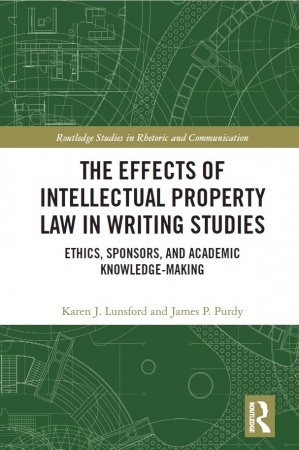
This book documents the intellectual property experiences of writing studies scholars and challenges naturalized ways of responding to intellectual property concerns. Analyzing results of a nationwide survey and semi-structured interviews to examine ways decisions about intellectual property (IP) during academic knowledge-making are mediated by histories of enculturation, ethical lenses, and IP sponsors, the book: Identifies and illustrates a range of ethical stances that academics might adopt in regard to IP and the range of human, institutional, and technological sponsors that can mediate IP decisions; Provides evidence that IP affects all of the processes of academic knowledge-making, not just the final product; Offers heuristic questions that academics can and should ask throughout their teaching, research, and editing to make proactive IP decisions. The book is an essential read for academics working in writing studies and the humanities as well as those interested in IP. This text could also be used in graduate student training in writing studies and related disciplines.
